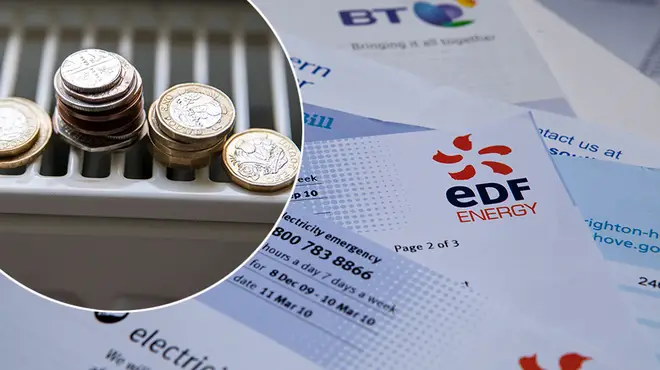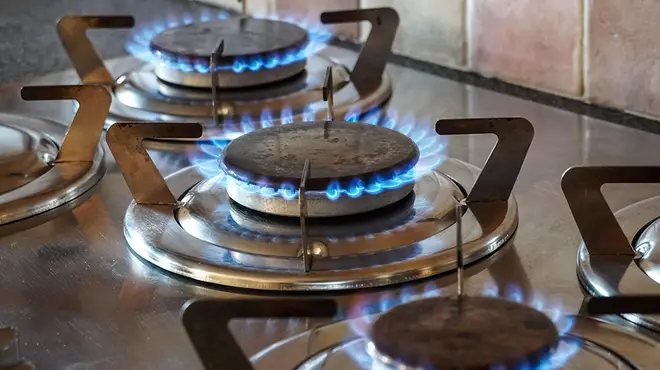
Matt Frei 10am - 1pm
27 February 2023, 11:09 | Updated: 27 February 2023, 12:33

Energy bills are about to increase again despite Ofgem reducing the cap on gas and electricity costs, but why? And what exactly is the energy price guarantee?
Energy regulator Ofgem has confirmed the amount suppliers can charge households for energy has been cut, but typical bills will increase again in April.
A typical house, a home which uses 12,000 kWh (kilowatt hours) of gas and 2,900 kWh of electricity a year, will now be paying around £3,000 a year from April 2023 and this is largely because the government's help and support schemes will be becoming less generous.
Ofgem said: "This reduction in the price cap level reflects a significant reduction in the cost of buying and providing energy for customers. If it continues, it will mean that by the summer, prices paid by consumers will drop for the first time since the global gas crisis took hold more than 18 months ago."
Read more: Millions of households face 5% council tax hike in April
Read more: What is the UK inflation rate and when could it start to come down?
So as the cost of living crisis continues to soar, here's what the energy price cap is and why UK energy bills are still rising.

The energy price cap is a limit on the price people/households can pay suppliers for their energy. This is worked out on each kilowatt hour of energy use meaning you only pay for the gas and energy you use.
The cap works as a government protection that ensures the profit that energy suppliers make is capped.
Ofgem calculate the price cap by looking at a typical domestic consumer with medium energy use.
There is now also an energy price guarantee, a measure used to protect customers following the recent significant increases in the UK.
The guarantee was introduced in October 2022 for two years but was then reduced to April 2023.

Martin Lewis fumes at government not controlling energy price rise.
Energy prices originally began to soar following the Russia-Ukraine war which saw reduced supplies of Russian gas.
This was combined with the demand for energy increasing following the coronavirus pandemic and the restrictions officially coming to an end.
The April 2023 bill increases will also feel particularly hard for households as the government support schemes come to an end and less help will be given to those struggling with costs.
The government's £400 energy rebate scheme, which has been paid in instalments over six months, will be ending this month.
The energy price guarantee will also be reinstated from April 2023 as Jeremy Hunt confirmed it will be back again, but this time it will increase by £500. This means a typical household will pay around £3,000 annually rather than the previous £2,500.
On a more positive note, energy prices are predicted to drop from July to September to around £2,800.